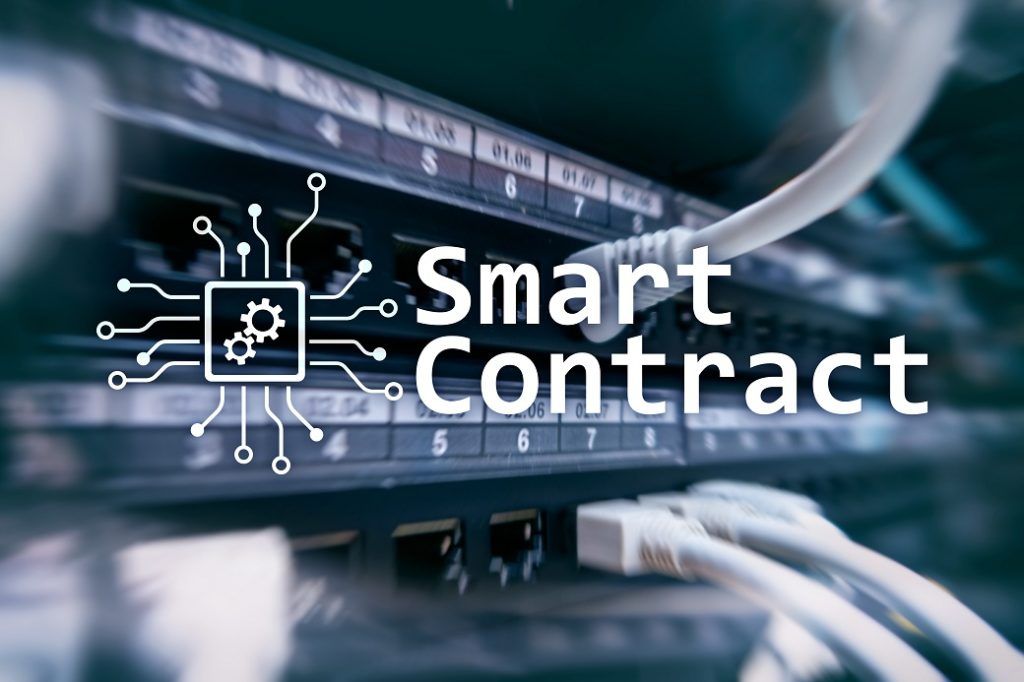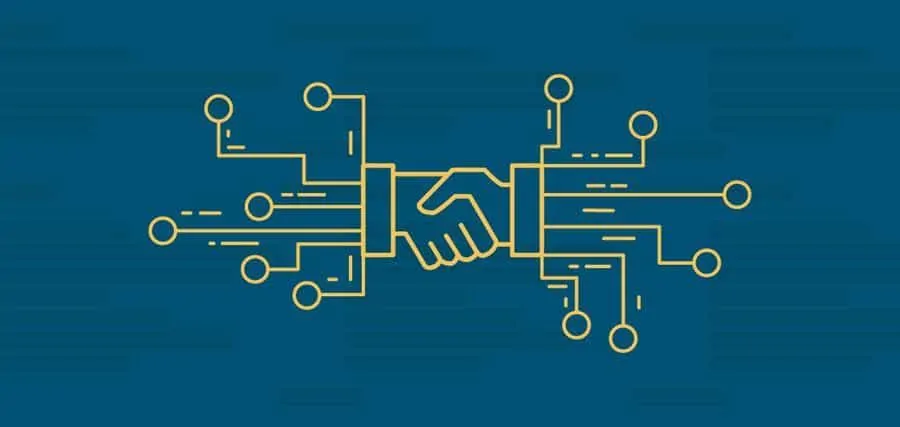Smart Contracts
Understanding Their Functionality, Importance, and Implementations
 Blockchain smart contracts have emerged as a powerful tool for automating and executing self-enforcing agreements on blockchain networks. In this article, we will explore what smart contracts are, how they work, why they are important, and examples of smart contract implementations across various industries.
Blockchain smart contracts have emerged as a powerful tool for automating and executing self-enforcing agreements on blockchain networks. In this article, we will explore what smart contracts are, how they work, why they are important, and examples of smart contract implementations across various industries.
What is a Blockchain Smart Contract
A blockchain smart contract is a self-executing digital contract that is encoded with predefined rules and conditions. These contracts are deployed and executed on a blockchain network, where they autonomously facilitate, verify, or enforce the terms of an agreement between two or more parties. Smart contracts are written in programming languages like Solidity (used in Ethereum) and deployed to the blockchain as immutable code.
How Smart Contracts Work
Smart contracts operate on the principle of "if-then" logic, where predefined conditions trigger specific actions or outcomes. Here's how smart contracts work:
- Contract Deployment: A smart contract is created by a developer and deployed to the blockchain network. The contract code, along with its rules and conditions, is stored on the blockchain as immutable code.
- Contract Invocation: Parties involved in a transaction interact with the smart contract by sending transactions to its address on the blockchain. These transactions contain inputs and parameters that trigger specific functions or actions defined in the smart contract code.
- Code Execution: Once triggered, the smart contract autonomously executes the predefined logic encoded in its code. This may involve performing calculations, updating data on the blockchain, or transferring digital assets between parties.
- Verification and Validation: The outcomes of the smart contract execution are verified and validated by all nodes in the blockchain network through a process known as consensus. Once consensus is reached, the results of the contract execution are recorded on the blockchain as immutable transactions.
Importants of Smart Contracts
Smart contracts offer several key advantages over traditional contracts and manual processes:
- Trust: Smart contracts operate on a decentralized blockchain network, eliminating the need for intermediaries and reducing the risk of fraud, manipulation, or human error.
- Transparency: The transparent and immutable nature of blockchain ensures that smart contract transactions are recorded and verifiable by all parties, enhancing transparency and accountability.
- Efficiency: Smart contracts automate and streamline the execution of agreements, reducing the time, cost, and complexity associated with traditional contract processes.
- Security: Smart contracts are tamper-proof and resistant to censorship, providing a secure and reliable framework for executing agreements without the need for third-party oversight.
Smart Contract Implementations
Smart contracts have been implemented across various industries and use cases, including:
- Decentralized Finance (DeFi): Smart contracts power a wide range of DeFi applications, including lending, borrowing, decentralized exchanges (DEXs), and yield farming.
- Supply Chain Management: Smart contracts enable transparent and traceable supply chain processes, facilitating real-time tracking of goods, inventory management, and automated payments.
- Digital Identity: Smart contracts are used to manage and verify digital identities, providing secure and decentralized authentication and access control solutions.
- Legal Contracts: Smart contracts have applications in legal agreements, such as escrow services, rental agreements, and intellectual property rights management.

EXAMPLES
Here are some examples of blockchain smart contract implementations across various industries:
Decentralized Finance (DeFi):
- Decentralized Exchanges (DEXs): Platforms like Uniswap and SushiSwap use smart contracts to facilitate peer-to-peer trading of digital assets without the need for intermediaries.
- Automated Market Makers (AMMs): Protocols like Balancer and Curve leverage smart contracts to provide liquidity pools and algorithmic trading strategies for users.
- Lending and Borrowing: Platforms such as Compound and Aave utilize smart contracts to enable users to lend or borrow digital assets and earn interest or pay borrowing fees.
- Yield Farming: Smart contract-based yield farming protocols like Yearn Finance and Harvest Finance automate the process of optimizing yield generation across various DeFi platforms.
Supply Chain Management:
- Track-and-Trace Solutions: Projects like VeChain and IBM Food Trust leverage smart contracts to enable transparent and traceable supply chain management, ensuring authenticity and provenance of goods from origin to destination.
- Inventory Management: Smart contracts are used to automate inventory tracking, stock replenishment, and order fulfillment processes, reducing errors and improving efficiency in supply chain operations.
Digital Identity:
- Self-Sovereign Identity: Platforms like uPort and Sovrin use smart contracts to enable individuals to create and manage their digital identities securely on the blockchain, giving them full control over their personal data and authentication.
- Identity Verification: Smart contracts facilitate identity verification processes by securely storing and verifying credentials and attestations issued by trusted parties, reducing the reliance on centralized identity providers.
Legal Contracts:
- Escrow Services: Smart contracts are used to create escrow agreements, where digital assets are held in escrow until predefined conditions are met, ensuring trust and security in transactions.
- Rental Agreements: Platforms like Rentberry and Bee Token utilize smart contracts to automate rental agreements, including rent payments, security deposits, and lease terms, eliminating the need for intermediaries and reducing disputes.
- Intellectual Property Rights: Smart contracts enable the creation and enforcement of digital rights management (DRM) solutions, where ownership and usage rights of digital assets such as music, art, and software are managed transparently and securely on the blockchain.
These examples illustrate the versatility and potential of blockchain smart contracts to streamline processes, enhance transparency, and create new opportunities for innovation across various industries. As the technology continues to evolve, we can expect to see even more creative and impactful implementations of smart contracts in the future.
Blockchain smart contracts are revolutionizing the way agreements are made, executed, and enforced in various industries. By automating and streamlining contract processes on a decentralized and transparent platform, smart contracts offer increased efficiency, security, and trust in the digital economy. As smart contract technology continues to evolve and mature, we can expect to see broader adoption and innovative applications across diverse sectors, driving further advancements in blockchain technology and decentralized finance.
Thank you for reading!
Find useful articles to read: HERE




































